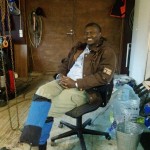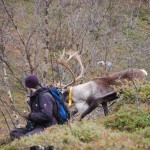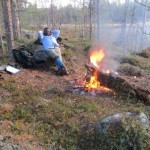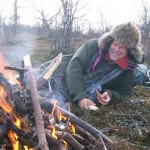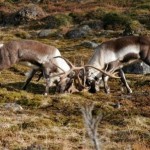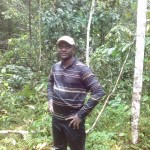Robert B. Weladji, PhD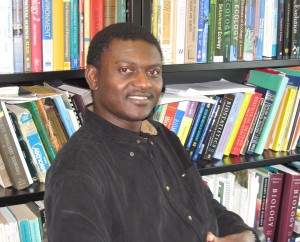
Professor / Professeur Titulaire
Graduate Program Director
Department of Biology
Concordia University
7141 Sherbrooke St. W.
Montréal, Québec
Canada H4B 1R6
Phone: 514-848-2424 ext. 3408
Fax: 514-848-2881
Teaching
- Biodiversity and Ecology
- Population Ecology
Research
My research interest is rather broad and includes population ecology, behavioral and evolutionary ecology, wildlife conservation and management, and more recently the welfare of captive wildlife. During the last years, I have worked mainly with (1) the influence of environmental conditions (including global climatic change) on life history and population dynamics of ungulates, mainly large herbivores (e.g. reindeer/caribou, sheep); (2) life history strategies and evolutionary ecology of mammals, mainly reindeer/caribou and sheep, and (3) behavioral ecology (rutting behavior, mating strategies, cooperative behaviors, social interactions, etc.). Together with colleagues from Norway and Finland, I am currently interested in understanding sexual strategies (mating strategies, mate choice, costs of sexual reproduction, etc.), testing mating systems theories, and the influence of the male composition (e.g. age structure, sex ratio) on population ecology of cervids. The major challenge of my research is to integrate all this knowledge so as to promote sustainable conservation and management of the biodiversity (fauna and flora). I am also interested in (4) the welfare of captive wildlife, and (5) management and conservation of biodiversity in the tropics. Indeed I recently established a long term research program in Africa (Cameroon), with a kick off project on Human-Elephant Interactions in the Campo-Ma’an National Park in 2017. In 2023, I founded the Center for Research in Ecology and Conservation of Biodiversity based in Cameroon, with main office in Campo, next to the Campo Ma’an National Park conservation office. To achieve all these, I can count on collaborators in Canada, Norway, Finland, France, Uganda, South Africa and Cameroon, but also on the contribution from the students.
